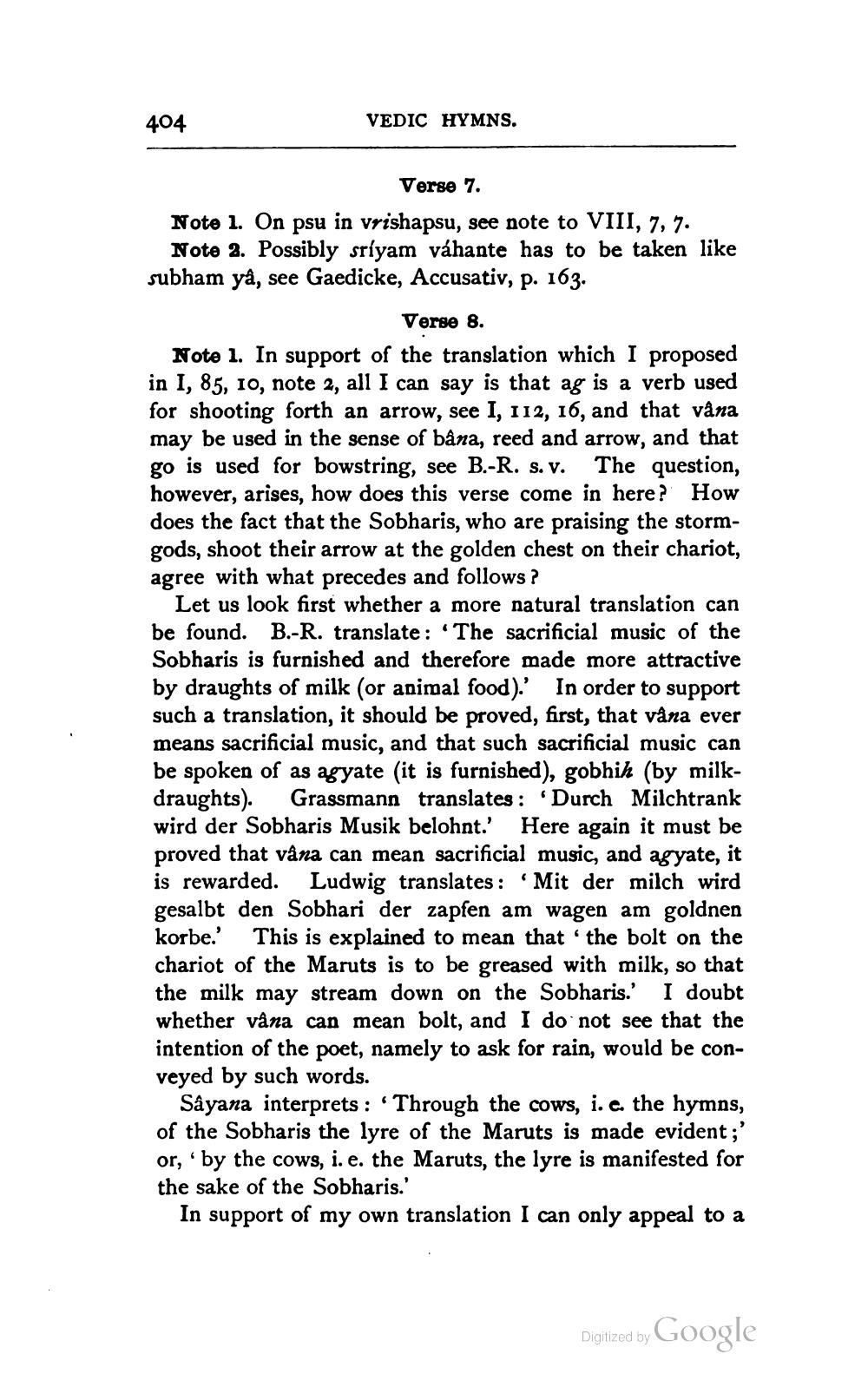________________
404
VEDIC HYMNS.
Verse 7. Note 1. On psu in vrishapsu, see note to VIII, 7, 7.
Note 2. Possibly sriyam váhante has to be taken like subham ya, see Gaedicke, Accusativ, p. 163.
Verse 8. Note 1. In support of the translation which I proposed in I, 85, 10, note 2, all I can say is that ag is a verb used for shooting forth an arrow, see I, 112, 16, and that vana may be used in the sense of bâna, reed and arrow, and that go is used for bowstring, see B.-R. s. v. The question, however, arises, how does this verse come in here? How does the fact that the Sobharis, who are praising the stormgods, shoot their arrow at the golden chest on their chariot, agree with what precedes and follows ?
Let us look first whether a more natural translation can be found. B.-R. translate: 'The sacrificial music of the Sobharis is furnished and therefore made more attractive by draughts of milk (or animal food).' In order to support such a translation, it should be proved, first, that vâna ever means sacrificial music, and that such sacrificial music can be spoken of as agyate (it is furnished), gobhih (by milkdraughts). Grassmann translates : Durch Milchtrank wird der Sobharis Musik belohnt. Here again it must be proved that vâna can mean sacrificial music, and agyate, it is rewarded. Ludwig translates : Mit der milch wird gesalbt den Sobhari der zapfen am wagen am goldnen korbe.' This is explained to mean that the bolt on the chariot of the Maruts is to be greased with milk, so that the milk may stream down on the Sobharis.' I doubt whether vâna can mean bolt, and I do not see that the intention of the poet, namely to ask for rain, would be conveyed by such words.
Sâyana interprets: Through the cows, i.e. the hymns, of the Sobharis the lyre of the Maruts is made evident;' or, by the cows, i.e. the Maruts, the lyre is manifested for the sake of the Sobharis.'
In support of my own translation I can only appeal to a
Digitized by Google




